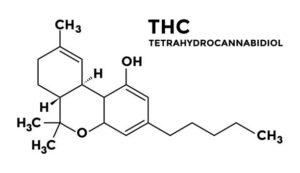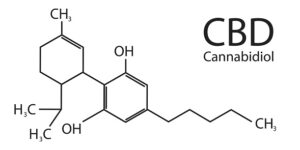Hemp and other cannabis products continue to become more mainstream, and legal acceptance of these goods is growing across the country. However, some confusion still remains amongst consumer groups as they consider their options.
Much of this confusion stems around what makes cannabidiol (CBD) different from tetrahydrocannabinol (THC). Both of these compounds are naturally occurring in Cannabis genus plants—however, to that point, they are still different.
THC vs. CBD: The Facts
Both hemp (which is where CBD is derived from) and THC come from the Cannabis sativa plant. However, when examined as components of CBD products, there are some things to be aware of.
Let’s start first with THC, since this is a primary concern for many CBD shoppers. THC is the compound in the cannabis plant that is ultimately psychoactive in nature—it is what will make you feel
“high.” It is found in many oils, edibles, capsules, tinctures, and more; plus, you can ingest it by smoking cannabis—also known as marijuana.
On the other hand, in order to be legal, hemp must contain 0.3% or less of THC. In this regard, CBD products are also sold in varied forms, including supplements, capsules, gummies, oils, and more.
At the end of the day, both THC and CBD will interact with the body’s endocannabinoid system—but the effects they have are intensely different.


Their Chemical Structures
Pertaining to the molecular structure of THC and CBD, both have 21 carbon atoms, 30 hydrogen atoms, and 2 oxygen atoms. But how the atoms are arranged in the compounds is what makes them have different effects when consumed.
And what needs to be discussed more is how they interact with the body’s endocannabinoid system. Both THC and CBD are chemically similar to the endocannabinoids that occur in the body naturally. THC and CBD will interact with that system and this triggers the release of neurotransmitters that are found in the brain. These neurotransmitters are actually chemicals, and they are key in messaging between the body’s cells. They play an important role in managing pain, triggering immune function, dealing with stress, promoting sleep, and more.
Their Legality
In the United States especially, laws regarding cannabis usage (both of products containing THC and CBD) are quickly evolving. Currently, hemp has been removed from the Controlled Substances Act and certain states, including the District of Columbia, have made medical cannabis containing high levels of THC legal. Recreational use has also been approved in some states. Of course, before you use either CBD or THC products, we encourage you to research your state’s laws.
The Medical Benefits
Now, here comes the especially important part. CBD and THC have many of the same medical benefits. However, the one big difference is that when you use a CBD product, you will not experience the high or euphoria experienced when you use THC. Because of this reason (along with issues pertaining to legality, drug testing, and more with THC), many people choose CBD products over THC.
CBD has the potential ability to treat conditions that include:
- Inflammation
- Anxiety
- Stress
- Migraine
- Depression
- Pain
- Seizures
- Digestive Issues
THC, on the other hand, can be used to help with the following, in addition to many of the conditions we mentioned above:
- Glaucoma
- Muscle spasms
- Pain and nausea associated with cancer treatment/chemotherapy
- Low appetite
And on To Drug Testing
Finally, let’s talk about the final elephant in the room—and it’s straightforward. THC will show up on a drug test. CBD (so long as the hemp-derived product contains under 0.3% of THC) will not show up on a drug test (or is unlikely to).
The Takeaway
While similar in nature, CBD and THC are still vastly different—especially when considering that CBD will allow you to realize many of the same potential medical and health benefits, but without experiencing the high.
At Asé Pure Naturals, our CBD oils and other products contain under 0.3% THC, meaning they are good for your overall wellbeing and health, but will not impact the results of a drug test, impair your judgment, or have you in worried about being in jeopardy of the law. We would love to speak with you about our products and their benefits more. As such, we invite you to reach out to a member of our team.








